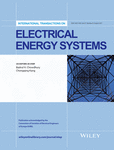Short-term hydrothermal coordination using water cycle algorithm with evaporation rate
Summary
The demand of electrical energy is increasing and so is its cost. The conventional means of generation of electrical are the hydel and thermal. Their optimized mutual operation results in the most economic electrical energy for the end user. Therefore, the optimized operation of hydel and thermal plants known as hydrothermal coordination (HTC) is one of the important and challenging tasks in the field of power system operation. This paper investigates a modified version of a new nature inspired algorithm, water cycle algorithm called as evaporation rate–based water cycle algorithm (ERWCA) for the solution of HTC. This algorithm has its roots from the natural water cycle. The raindrops form streams, which flow to the rivers and eventually into the sea. The streams either merge into rivers and sea or they are too slow to reach the rivers or sea; the evaporation process occurs, which again causes the rainfall. Hence, new streams will be created. In this paper, ERWCA has been successfully applied to the problem of HTC. The complex constraints of the hydel and thermal network especially the prohibited discharge zones of hydel plants and the ramp rates of thermal plants, which are rarely taken into account, have been incorporated. The comparison of the results with other nature inspired techniques already available in the literature like particle swarm optimization and differential evolution shows the strength and potential of this new technique ERWCA in obtaining the better quality result.




